Nutrition after giving birth to a nursing mother. Nutrition for the mother after childbirth
The only food for a newborn is breast milk. The human body is so arranged that it cannot perceive other products (except for adapted mixtures) in the first months of life. Naturally, nursing mothers should take care of maintaining lactation, which will allow the baby to receive adequate nutrition.
Well, this is already a whole topic for conversation. After all, many of our mothers and grandmothers know what nutrition should be after childbirth. And they not only know, but also gladly give wise advice. What to believe and what to ignore? We will try to figure it out in our article.
Getting ready for childbirth
Doctors have long learned to calculate the expected date of birth. When 2-3 weeks are left before the baby is born, start gradually changing the diet. Reduce your intake of dairy products, all kinds of nuts, sweets (especially muffins and chocolate) as much as possible. Avoid red fish, shrimp, smoked meats, coffee and cocoa, strawberries and raspberries.
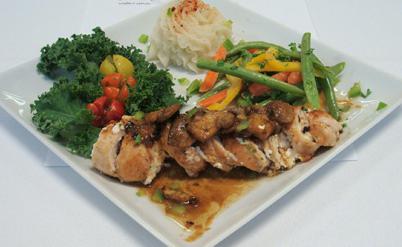
In a newborn baby, diathesis may appear suddenly, even if you ate properly during lactation. The fact is that allergens accumulate in the body gradually, and provoking an external appearance of a rash is easier than ever. Pay attention to those foods that cause allergies in other family members, do not forget about heredity.
How to eat right after childbirth
You do not need to limit yourself to food drastically and consume too much liquid. The first 2-3 days, the process of adjusting lactation takes place. If you drink more than 1 liter, you may have problems with excess milk flow, which is fraught with unpleasant painful sensations. The liquid is used as needed, when there is a desire.
There are many questions related to how to establish nutrition after childbirth. The first days are advised to refrain from eating meat and baking. Include porridge on water, baked apples, 1 boiled egg, biscuit biscuits in the diet. You can eat soups. The fact is that the first bowel movement after childbirth occurs only on the 4th day after the cleansing enema. Eating rough and heavy foods will aggravate the bowel movement.
The nutrition of a woman in labor after childbirth should be supplemented with light foods even if there are stitches on the perineum. After 7-10 days, the diet can be replenished with dishes from boiled or baked meat, use fermented milk products (no more than 300 g per day), hard cheeses, fish and stewed vegetables.
What to remove from the diet?
You can limit food (the first month after childbirth), you should exclude raw vegetables, exotic fruits and citrus fruits (high risk of allergies), watermelons, melons, legumes, smoked meats and canned vegetables.
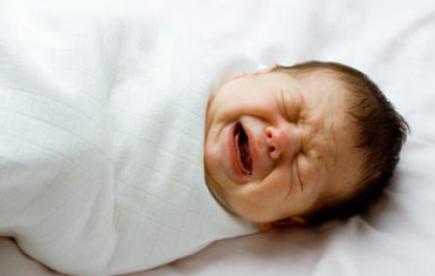
Forget about convenience foods and fast food. You should not cook cabbage dishes, especially if your mother has increased gas production in the intestines. The baby will have the same sensations.
A nursing mother shouldn't be hungry!
This is certainly true. Childbirth is a serious physiological process, it is the most difficult job for the body. Sleep and good nutrition for the mother after childbirth are the main components of a quick recovery of strength. But this does not mean at all that you need to eat constantly. Doctors have long proved that a woman's body prepares for the appearance of a baby and for future lactation throughout the entire period of pregnancy. With hormonal changes, fat accumulates in the abdomen, hips, and forearms. It is from here that the "reserve" is taken during milk production.
Roughly speaking, even with poor nutrition, a woman can continue to breastfeed. But here another problem arises, when useful substances are removed from the mother's body for the formation of high-grade milk. The reserves are developed and not replenished. It is believed that the mother's nutrition after childbirth should increase by 600-700 kcal due to the use of healthy foods. But overeating will lead to new body fat, which will only worsen postpartum depression. In the future, getting rid of excess weight will be even more difficult.
Carbohydrates + Proteins + Fats
These are the main components that should be present in the food of a healthy person.
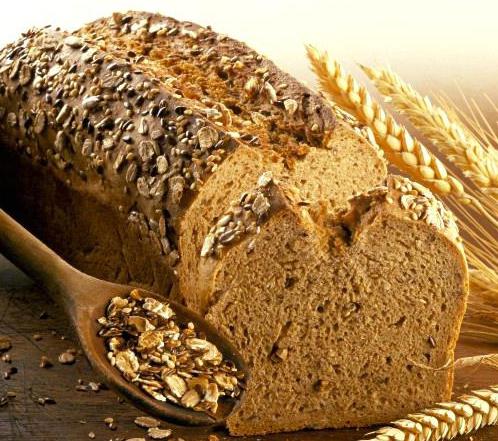
A woman's nutrition after childbirth largely consists of carbohydrates, which is why they are in the first place. Porridge, bread, durum flour pasta will also be an excellent source of fiber, vitamins and minerals.
Protein enters the body with lean meat, fish, and dairy products. It is a source of zinc and iron, which is needed for normal lactation and good nutrition for the baby.
Eating fat and eating fatty foods are not the same thing. Olive or sunflower oil will provide the body with everything it needs. But you can refuse fried cutlets, pies or french fries for a while.
How to expand the diet correctly?
Over time, the reserves of the female body dry up, and new products need to be added. The baby gets used to different tastes and sensations by tasting breast milk. If the child is 3 months old, you can expand the menu by adding millet and barley porridge, nuts (no more than 2 pieces per day), poultry, honey, preserves and jams, juices, fresh vegetables and fruits.
The mother's nutrition after childbirth is supplemented gradually, but at the same time they carefully monitor how the baby's body reacts to a new food for him. Try a slice of fresh apple or tomato. The accumulation of substances in milk occurs gradually, but if after 1-2 days the child's cheeks remain clean, there is no rash, you can increase the amount of this product. Do not experiment if the child has a stuffy nose, unstable stool. It is important to correctly draw up the menu when the vaccination is on schedule.
Until the baby is six months old, the mother gradually returns to the diet most of the foods that she ate before pregnancy. If everything is done correctly, nutrition after childbirth will become as complete and will not cause trouble for either a nursing woman or a baby.
How much liquid to drink?
Many breastfeeding mothers have heard the advice that drinking a glass of hot tea before feeding improves milk flow. If it is difficult for a baby to suckle at the breast (due to the physiological characteristics of the structure of the mammary gland), then a warm drink really makes feeding easier.
However, there is no direct relationship between the amount of fluid you drink and the amount of breast milk produced. But doctors have long established that the thoughtless use of water or tea can lead to a decrease in lactation.
Does the mother's diet after childbirth include the mandatory use of tea with condensed milk? Any concentrated foods can cause allergies in the baby. It is better to refuse adding whole milk. His pediatricians advise to include in the diet of a nursing mother no earlier than six months after childbirth.
How Much Dairy Products Should You Eat?
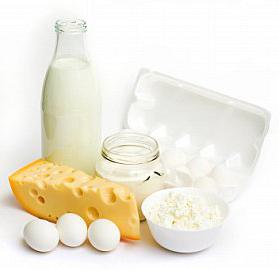
One of the most common questions of those women who seek to maintain lactation. The main thing is to immediately understand that the nutrition of a nursing mother after childbirth can be supplemented with fermented milk products only if the woman loves them and eats them with pleasure. What's the use of choking on the curd mass if this product is hated from childhood.
Moreover, the composition of breast milk will not change if kefirs, yogurt and cheeses are completely eliminated. By the way, the body of many women does not perceive such products at all, there are problems with digestion, and bloating appears. And the child's body can react the same way. So there will be more problems than benefits. If the mother tolerates dairy products normally, then it is advised to consume at least three different types per day. In this case, the body will receive a sufficient amount of vitamin D and calcium, which are indispensable for the restoration and formation of bone tissue.
Vegetable menu
Postpartum nutrition should include a variety of foods. It is believed that vegetables and fruits of bright colors (red, yellow, orange) cause allergies in the baby. However, the gifts of fields and gardens are a source of minerals, phytonutrients and vitamins. It is impossible to do without them.
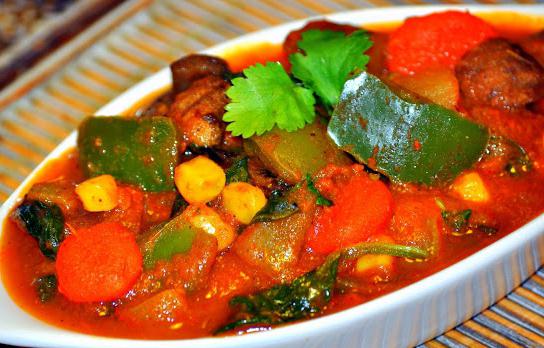
Often one of the parents is allergic to a particular product. You do not need to completely give up vegetables and fruits. But it is worth adding them to the diet gradually, carefully monitoring how the infant reacts. When the baby is 6 months old, doctors advise nursing mothers to eat at least 5 different fruits and vegetables every day.
Special food
A lot of controversy is caused by adherence to vegetarianism or the use of low-calorie foods. Conscientious objection to meat and animal products is not always a whim. Not everyone can switch to another food. In order for the nutrition of a nursing mother after childbirth to be complete, be sure to visit a doctor who prescribes a complex of vitamins and minerals. It must be taken throughout the lactation period.
What to eat after a cesarean section
Differences are only in the first couple of days. After the operation, women in labor are transported to the intensive care unit, where they are carefully looked after, put on droppers. With medications, nutrients enter the bloodstream, and there is no need to use something additionally. You can drink mineral water without gas.
Adequate nutrition after childbirth begins on the second day. You can eat mashed potatoes, porridge boiled in water, or low-fat broth. On the third day, boiled lean meat and fish are included in the diet. In the future, food should be fractional, no more than 100 g per meal, at least 5 times a day.
Sample menu options for nursing mothers
- Rosehip broth without sugar and mineral water.
- Porridge without oil (we do not cook rice groats yet).
- Vegetable soups without spices.
- Any boiled vegetables without oil and spices.
- Baked fruits (usually apples).
- Boiled meat.
- Compote made from dried apples, plums and berries.
- Butter (add to porridge).
- Boiled fish.
- Vegetable stew.
- Cheese (no more than 30 g per day).
Starting from the second month, we gradually introduce into the diet:
- Dairy products (up to 2.5% fat).
- Vegetable pancakes.
- Nuts (1-2 pieces).
- Cheesecakes, pancakes.
- Jam, honey (if there is no reaction).
- Boiled lentils.
Recipes for nursing mothers
Postpartum meals can be delicious if you take a few minutes to take advantage of our tips. For example, meat can not only be boiled, but also baked, and delicious cutlets can be made from fish.
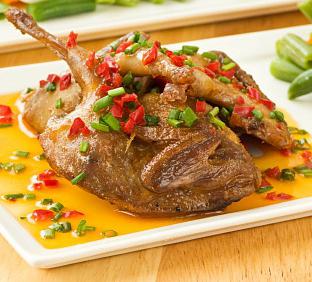
Diversify the menu with healthy and tasty dishes, enjoy breastfeeding, and your baby will delight you with excellent health and good mood!
 How to have the perfect date when you're not romantic
How to have the perfect date when you're not romantic What diseases do you need to drink coffee - benefits and effects
What diseases do you need to drink coffee - benefits and effects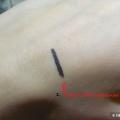 All my brown eyeliners
All my brown eyeliners